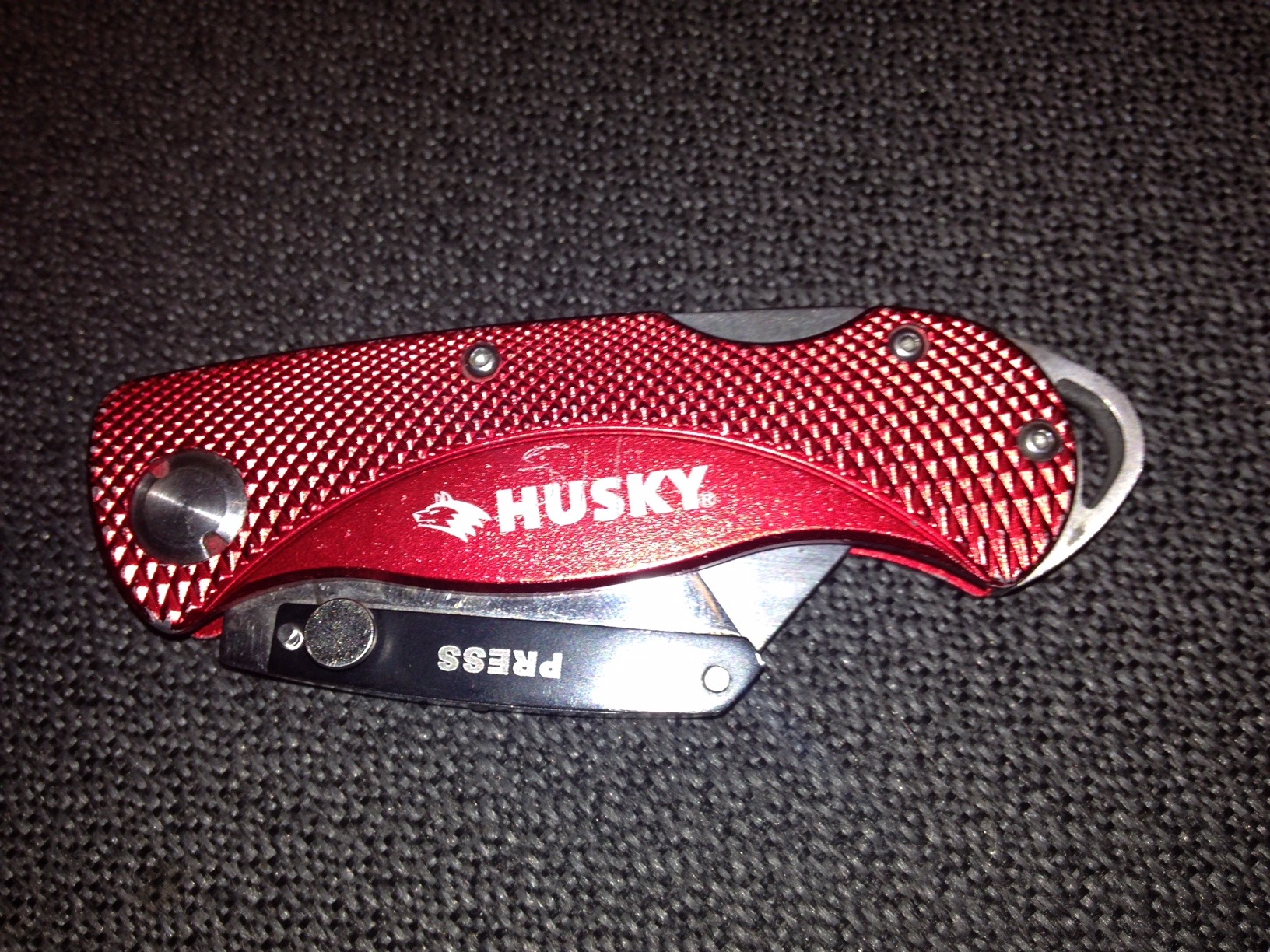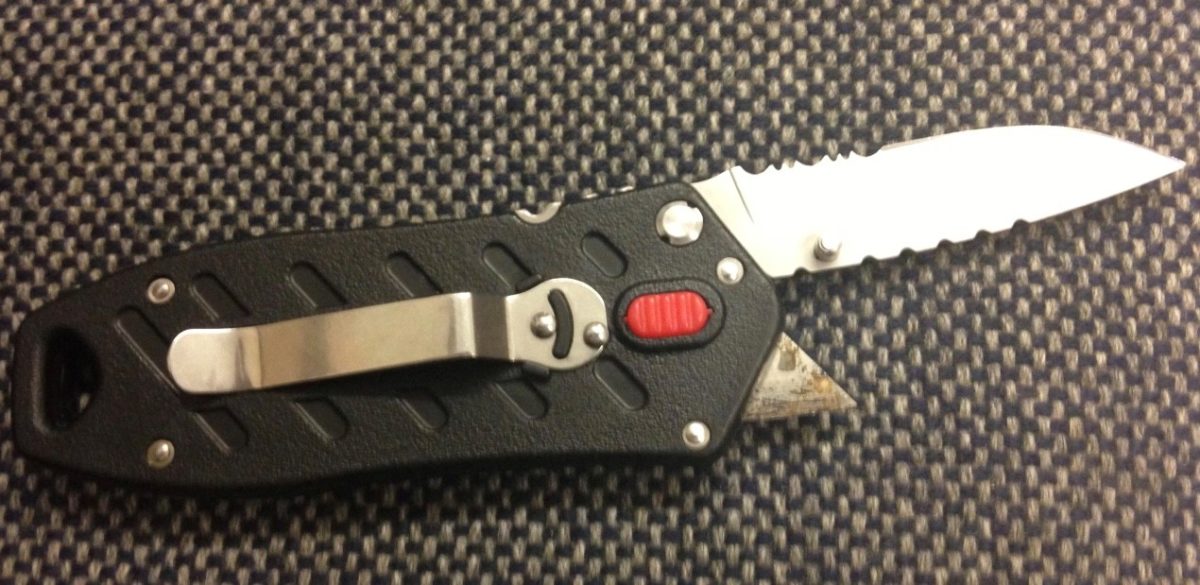New York Lawmaker Announces Sweeping Challenge to Gravity Knife Law
Opponents of the law say it unfairly targets people who need knives for work, and are battling it on multiple fronts.

After years of pressure from advocates, New York State’s controversial “gravity knife” is facing its most aggressive challenge yet. State Assemblymember Dan Quart of Manhattan has introduced new legislation to change New York’s knife laws, hoping to finally secure Governor Andrew Cuomo’s signature after he twice vetoed similar measures.
Quart said the new political reality in Albany—where Democrats took control of the state Senate last year and stoked energy for criminal justice reform—means he expects the bill will move easily to the governor’s desk. The rest falls to Cuomo, a three-term Democrat.
“The legislature voted overwhelmingly, on two separate occasions, to reform the knife law, so I don’t anticipate much opposition—or any opposition—to our third attempt,” Quart told The Appeal. “This is really about the governor finally signing reform of our state’s ambiguous knife laws.”
Previous bills had sought to tweak the statute, requiring that prosecutors demonstrate criminal intent, for example, or adjusting the definition of a “gravity knife” to exempt the most common varieties of pocket knives. The new bill, introduced last month, takes a different approach: It simply strikes that term from the penal code altogether.
Advocates have asked the U.S. Supreme Court to weigh the constitutionality of the law, arguing that it’s too vague to be fair.
The gravity knife statute has come under increasing criticism in recent years as it has swept up tens of thousands of New York City residents, overwhelmingly people of color, for owning what critics argue are common work tools. Some of those defendants have ended up serving multi-year prison terms
Alongside the legislative challenge, advocates have asked the U.S. Supreme Court to weigh the constitutionality of the law, arguing that it’s too vague to be fair.
“How can a person draw the conclusion that a given folding knife can never be flicked open by anyone?” the petition sums up the question. “Because no one can ever draw that conclusion, … therefore no one can ever know that he is in compliance with the Gravity Knife Law.”
The ban on “gravity knives,” passed in 1958, was originally aimed at a close relative of the switchblade. The text of the statute bans any knife that can be opened by “gravity or the application of centrifugal force.” In practice, that means any knife that opens with a flick of the wrist is illegal to own, even within one’s home.
Plaintiffs challenging its current enforcement say Manhattan District Attorney Cyrus Vance Jr., the target of the suit, has been erroneously applying the antiquated statute to common folding knives that the legislature never intended to outlaw. The result has been at least 60,000 arrests since 2003, ensnaring blue-collar workers and others who often purchased their knives at reputable hardware and outdoor gear stores, and had no reason to think they were illegal. Eighty-five percent of those arrested are Black or Hispanic, according to data compiled by the Legal Aid Society.
The state legislature passed reform measures related to gravity knives in 2016 and 2017, but Governor Cuomo vetoed them. Cuomo cited “continued concerns of law enforcement” and what he said was overbroad language that would have “essentially legalize[d] all folding knives.” Quart said he had not received assurances that the new approach, which would seem to leave Cuomo’s concerns unaddressed, would meet the governor’s approval. A spokesperson for Cuomo said only that the office would review the legislation.
Previous changes have also faced significant opposition from Vance, who lobbied behind the scenes against them. In the final stretch in 2016, Mayor Bill de Blasio and NYPD officials joined him in publicly opposing reforms, along with the powerful District Attorneys Association of the State of New York.
Vance in 2016 sent a memo to his staff directing them to forgo charges in most cases where people could prove they used their knives for work, and in the first half of 2018, the office did prosecute fewer cases than in the past, according to new data from the Legal Aid Society. But Manhattan continues to prosecute gravity knife cases more aggressively than any other borough, as The Appeal reported last year.

Just last week, Miles Allen, who was facing a gravity knife possession charge in Manhattan, received a state prison sentence of two to four years after he was caught with a knife he used as part of a work training program, according to his attorney, Catherine Costigan of the New York County Defenders. Although most gravity knife cases are charged as misdemeanors and often end in dismissal, Allen’s prosecution was an example of the statute’s “bump-up” provision, which exposes anyone with a prior conviction to a felony charge, and up to seven years in prison in some cases.
Danny Frost, a spokesperson for Vance’s office, wrote in an email that its prosecutors continue to offer dismissals when appropriate, and do not pursue cases where people have a legitimate need for their knives. Asked about the Allen case, Frost cited prosecution filings that argue there was “no support” for Allen’s contention that he used his knife for work, and that his prior record justified his prosecution.
The office believes that “gravity knives are dangerous weapons which do not belong on city streets,” Frost wrote in an earlier email. Still, he said, “We continue to stand ready to assist in the process of reforming this statute.”
On another front in the gravity knife fight, a nearly eight-year-old constitutional challenge to the statute will be heading to the Supreme Court if plaintiffs get their way. The case turns on whether the “wrist flick” test used by law enforcement to distinguish gravity knives from legal blades is too subjective to offer meaningful protection from arrest. The problem, plaintiffs say, is that the test is heavily dependent on the handler’s strength and skill, so a knife that appears acceptable in one test may be deemed unlawful in some other tester’s hands.
Shortly after purchasing a folding knife for use in his work, John Copeland, a modern artist and one of the plaintiffs in the current litigation, approached police officers on two separate occasions to confirm that it was legal, according to court filings. Both tested the knife and were unable to open it with a flick. A third officer, who stopped Copeland in 2010 after seeing the knife clipped to his pocket, made it function like a gravity knife and promptly arrested him.
A 2018 Legal Aid survey found 130 stores in Manhattan openly selling knives that qualify as gravity knives.
The Legal Aid Society recently filed an amicus brief in that case, urging a Supreme Court review. The group’s latest data show an uptick in felony gravity knife prosecutions in the city. In the first half of 2018, the group found, felony prosecutions inched up in all boroughs aside from Manhattan, compared with a similar period in 2015, the last for which such an analysis was performed.
The spike is most notable on Staten Island, where 18 felony cases were pursued in the first half of 2018. That’s a significant increase over 2015, which found no felony prosecutions there. District Attorney Michael McMahon’s office did not respond to requests for comment on the increase. Felony prosecutions also spiked in Brooklyn, the Bronx, and Queens, but mostly remain in the single digits.
Felony cases in Manhattan declined significantly, with 45 prosecutions in the first half of 2018 compared with 65 in the same period three years earlier. Even with that notable drop, however, Manhattan continues to prosecute more felony cases than all other boroughs combined.
The organization’s brief in support of the writ of certiorari underscores the law’s racially discriminatory enforcement history, particularly by Vance’s office, and includes information about the availability of gravity knives, even today, on city store shelves. A 2018 Legal Aid survey found 130 stores in Manhattan openly selling knives that qualify as gravity knives.
“We estimate that 3,500 New Yorkers were arrested for gravity knife possession in 2018,” said Martin LaFalce, a staff attorney at the Legal Aid Society who has been deeply involved in the litigation. “The Supreme Court should grant cert for that reason alone. This is a systemic problem, and it’s one of the most arbitrary law enforcement regimes in the country.”
